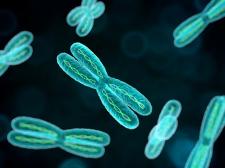Male and Female Stem Cells Derived from One Donor in Scientific First
By Dan Robitzski,
The Scientist
| 12. 22. 2022
Scientists have developed a new line of stem cells—all derived from the same person—that can be used to study sex differences without the confounds of interpersonal genetic differences.
Human induced pluripotent stem cells (hiPSCs), which are cells taken from a person that are then reprogrammed to abandon their current roles and return to a stem cell–like state, have become valuable tools not only for therapeutic purposes but also for probing the genetic mechanisms underlying cell behavior and disease. However, findings drawn from stem cell studies may not be broadly applicable, as the fact that all cells in a given line share the same genetic sequence makes it difficult to generalize discoveries, especially when it comes to investigating potential sex differences.
That’s why a team of scientists led by Benjamin Reubinoff, an embryonic stem cell researcher at the Hadassah Medical Organization in Jerusalem, and MD-PhD student Ithai Waldhorn set out to create a new platform for studying genetic sex differences. As Reubinoff tells The Scientist, “The origin was really to generate a model for studying sex differences, given the...
Related Articles
By Diaa Hadid and Shweta Desai, NPR | 01.29.2026
MUMBRA, India — The afternoon sun shines on the woman in a commuter-town café, highlighting her almond-shaped eyes and pale skin, a look often sought after by couples who need an egg to have a baby.
"I have good eggs,"...
By George Janes, BioNews | 01.12.2026
A heart attack patient has become the first person to be treated in a clinical trial of an experimental gene therapy, which aims to strengthen blood vessels after coronary bypass surgery.
Coronary artery bypass surgery is performed to treat...
By Staff, ScienceDaily | 01.05.2026
Scientists at UNSW Sydney have developed a new form of CRISPR technology that could make gene therapy safer while also resolving a decades-long debate about how genes are switched off. The research shows that small chemical markers attached to DNA
...
Following a long-standing CGS tradition, we present a selection of our favorite Biopolitical Times posts of the past year.
In 2025, we published up to four posts every month, written by 12 authors (staff, consultants and allies), some in collaboration and one simply credited to CGS.
These titles are presented in chronological order, except for three In Memoriam notices, which follow. Many more posts that are worth your time can be found in the archive. Scroll down and “VIEW...




